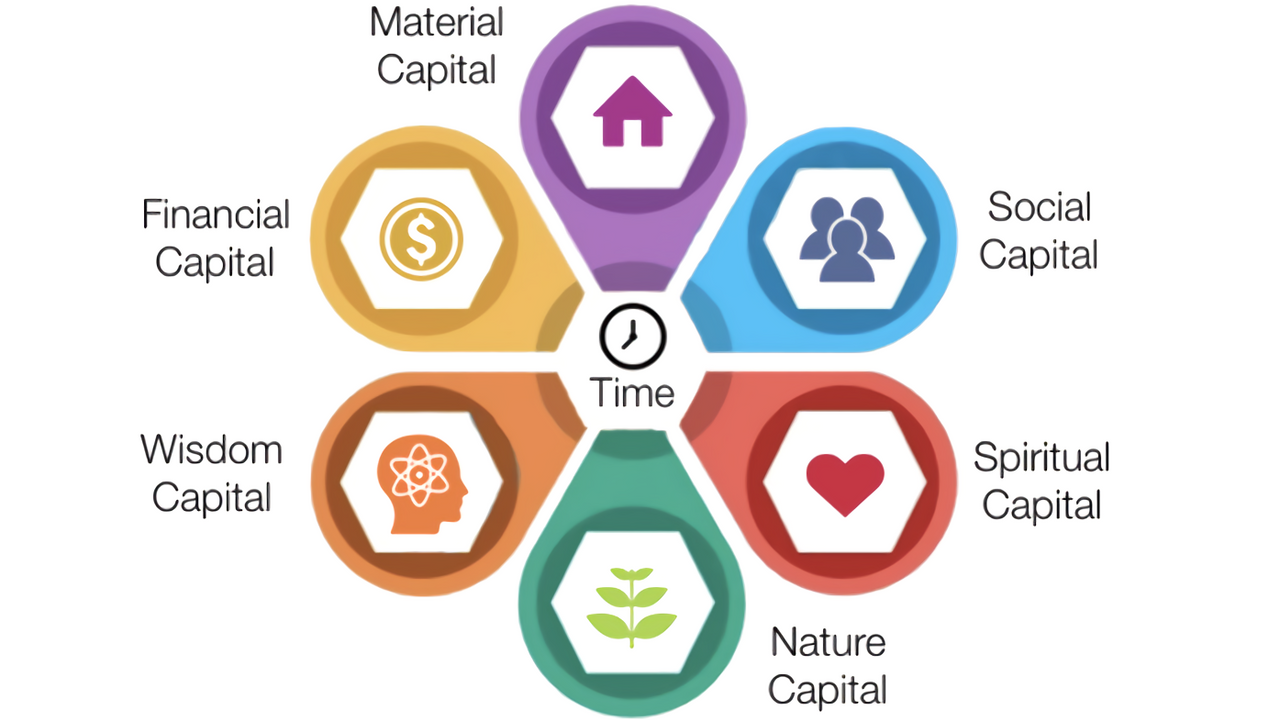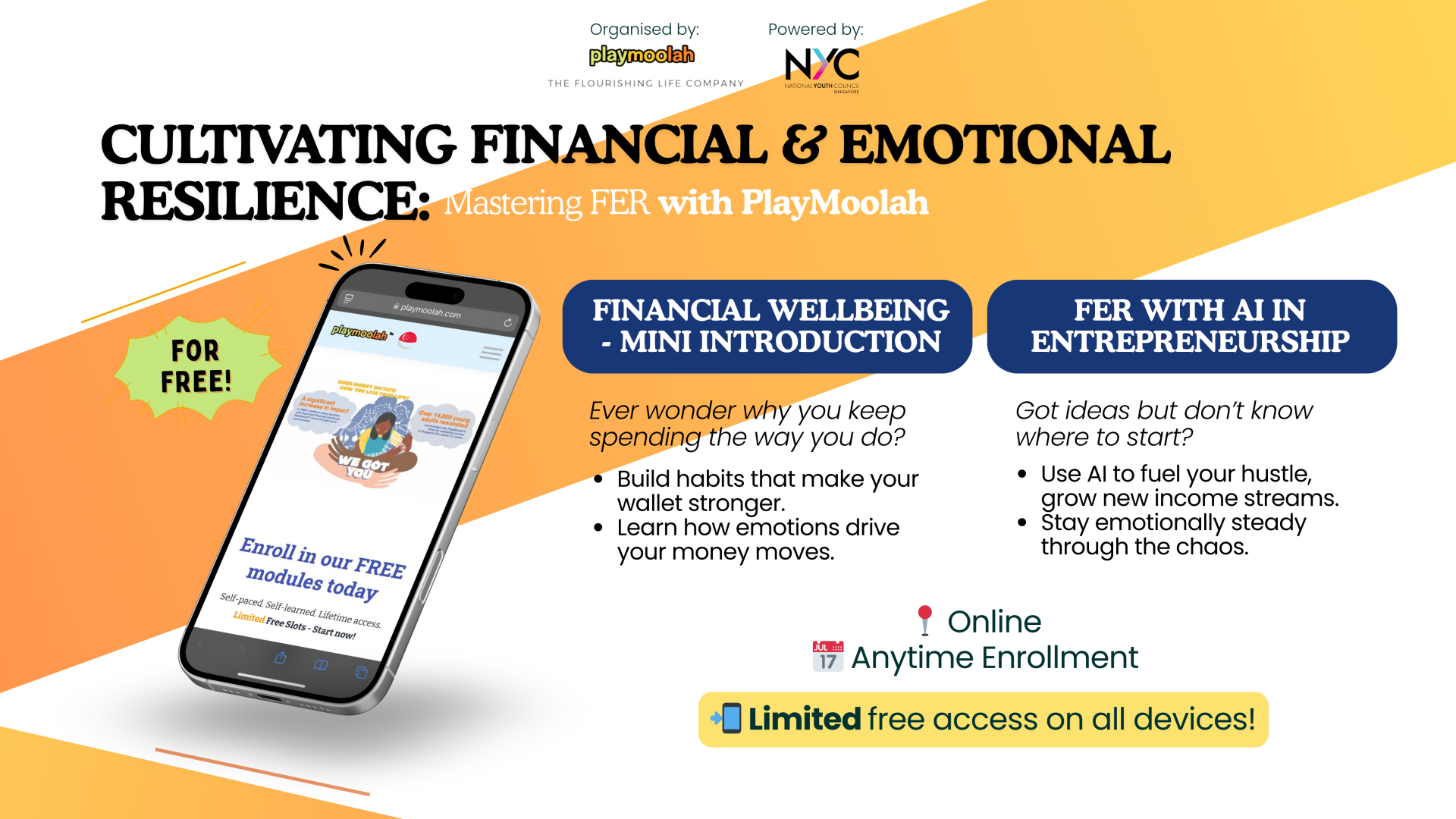When I say “wealth”, what immediately comes to mind? Money of course! In fact, the word "wealth" comes from "the condition of being well". Over the years, we asked many people what increases their well-being and found out that wealth isn’t as simple as money, but exists in so many forms. How can you start investing to build these 7 forms of wealth in your life today?
Empty space, drag to resize

Our society focuses a lot of attention on financial capital as it is our primary tool for exchanging goods and services with others. Financial capital is more than just money, but also investments that are traded on financial markets. When you invest money in a company, you are giving it “fuel” to achieve its potential, and if all goes well, some of that potential is returned to you, financially. This requires the foresight to understand what businesses will create value and grow in the long term. While money is important, our generation faces unprecedented financial uncertainty that is also causing environmental and social instability. We can no longer rely on building our security and wealth based solely on financial capital.
Empty space, drag to resize
Material capital is just what it sounds like: non-living physical resources. From raw materials like stone, metal, and fossil fuels, to infrastructure like our buildings and roads, to manufactured things like our computer and our clothes, material capital is a common way we measure our wealth because we can see it and we can count it. We invest in material capital by investing in tools that increase our productivity or performance (books, laptops, warm clothes), that last and give value over a long time (good roads, solid shoes), and that preserve the environment (reusable glass bottles), rather than buying things with a throwaway mindset.
Empty space, drag to resize
Wisdom can’t be bought, but it can be accumulated through the application of experience and knowledge. Going to school and reading a book will give us knowledge but no wisdom. Investing in wisdom capital is about using our knowledge and experience to achieve mastery, so we can create more value for others with more insight and excellence. Visiting a foreign country, learning a new skill and practicing the skill amongst professionals, or teaching something that you already know all build wisdom. In the words of Dave Matthews: “You don’t have to be old to be wise, a bird doesn’t wait till he dies to fly.”
Empty space, drag to resize
From the Earth we come, and to the Earth we return, and in between, the Earth sustains us. It sustains us with water and food we consume, the air we breathe, and the environment around us Nature capital represents our water and our soil, the plants and animals, and ultimately the health of us and our planet. In a consumer-culture, many of our actions are about extraction (meaning we take a lot from the environment). The opposite is regeneration (meaning we give back to the environment), and there are more people now starting to grow their own food and reduce their carbon footprint. One simple way to start investing in nature capital, is to choose foods that are healthy even though they may not be as tasty - we can't do a lot in life, if we do not have our health!
Empty space, drag to resize
Spiritual capital means many different things to different people. For some, it comes from a practice of religion, and for others, it comes from a connection of self to a larger purpose - through being in nature, dance, or art! Regardless of practice, spiritual capital guides our values, gives us passion, and cultivates a level of mental and emotional resilience and peace when times are tough. Investing in spiritual capital is about deepening our practice and being of service to others.
Empty space, drag to resize
All the happiness research has found that the number one key to happiness is the quality of our relationships. When we have social capital, we develop influence and connections among people that we can trust. Investing in social capital is not about having more friends on Facebook or followers on Snapchat or Instagram, but about building deep ties by being there for our friends and helping our community.
Empty space, drag to resize
There is something that we all have in common, whether you are a student, Justin Bieber, or the president of the United States - and that is, we all have 24 hours a day. How we use it makes all the difference. Investing in building time capital is not only about having MORE time to do what is important to us, but more crucially, the quality of time we spend on those important things. Take for example a couple going on a dinner date, but are both glued to their phones and not talking to each other. While they are spending time with each other, their attention is not present with each other. The currency of time is our attention. And what we put our attention on, shapes our reality.


